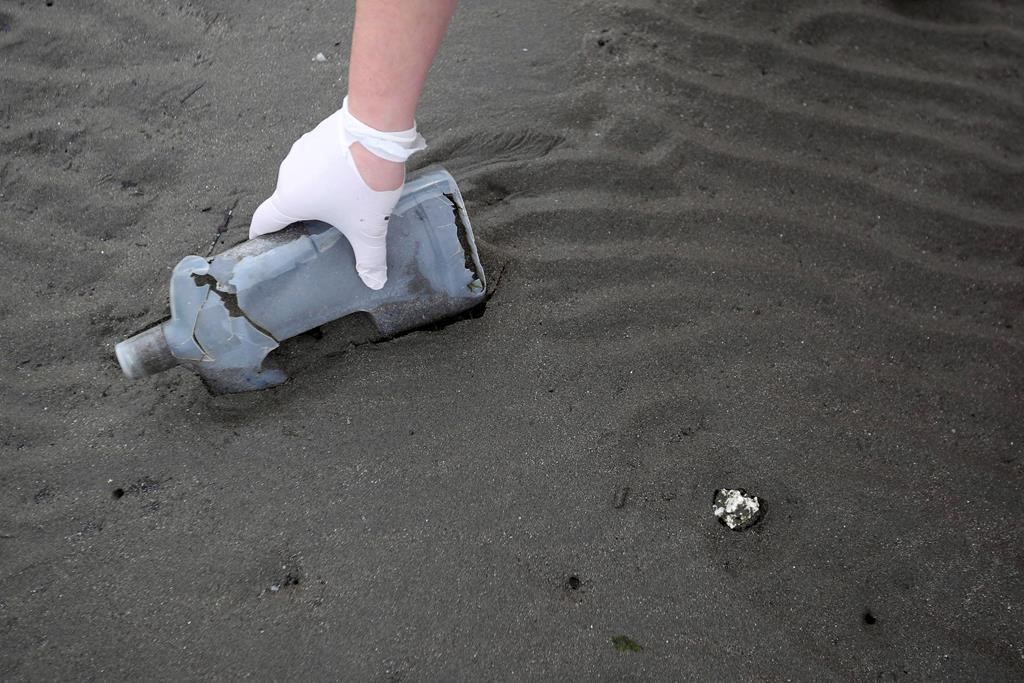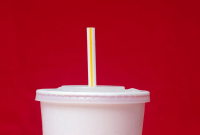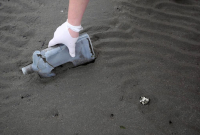Support strong Canadian climate journalism for 2025
A British Columbia non-profit is the first organization in North America to start collecting some of the toughest plastics to recycle, including potato chip bags, zipper-lock sandwich pouches and six-pack rings around beer cans.
The everyday items are made of multiple layers and compounds and usually end up in landfills or incinerators, Recycle BC spokesman Allen Langdon said.
"All the soft plastics, like grocery bags, things like that we can definitely recycle. It's the multi-laminents, this fusion of different plastics together that's the real challenge."
Recycle BC launched a voluntary collection program this month to accept so-called flexible plastics at 116 depots. Langdon said the organization is gearing up for provincewide collection next year.
"We're the first jurisdiction to even begin collecting these, much less trying to recycle them or try to do something productive other than just having them go to landfill," he said.
Among the plastics to be collected are bags used to package frozen and fresh foods and cheese, as well as squeeze tubes and cellophane from gift baskets and instant noodles.
Bubble wraps, coffee packages and net bags for oranges and other fruits and vegetables are also on the list of depot collectibles.
"Lots of these things are two kinds of plastic fused together, but there's also things like chip bags, which are a kind of plastic-aluminum meld," Langdon said. "Coffee bags, same thing. A lot of them have plastic on the outside and aluminum on the inside. How can you break them apart and actually have them recycled?"
He said collecting the flexible plastics is just the start, and figuring out how to recycle them is the larger issue. The pilot project is not connected to widespread curbside recycling programs in B.C., Langdon said.
Recycle BC will work with Delta-based Merlin Plastics Supply Inc., to research methods of recycling the flexible plastics, he said. The company was established in 1987 as a processor and marketer of industrial plastics scrap.
He said while Recycle BC is trying to do research and development on recycling the plastics, producers are attempting to move away from multi-laminents to pouches using a monopolymer, or a single type of plastic.
Prof. Leah Bendell, a marine biology expert at Simon Fraser University, said everyone has a role to play in reducing plastic pollution in the marine environment.
"I think it has to be approached at both ends, both the consumer making active choices, and the government stepping up to regulate and fine, if necessary, industries responsible for plastics debris entering our ocean ecosystems," she said.
Bendell co-authored a report last month that recommends a deeper look into the extent that shellfish ingest microbeads, microfibres and microfragments after the plastics were found near oyster farms off eastern Vancouver Island.
The report says evidence of microplastics came from 16 sites that were tested in the Baynes Sound and Lambert Channel areas, which are home to about 50 per cent of the province’s shellfish farms.
Earlier this week, officials in federal Environment Minister Catherine McKenna's office said the government is pursuing a national strategy to reduce plastic.
Canada and four other G7 nations signed a Canadian-driven plastics charter last weekend as part of their commitment to keep plastic out of landfills by 2040.





Comments